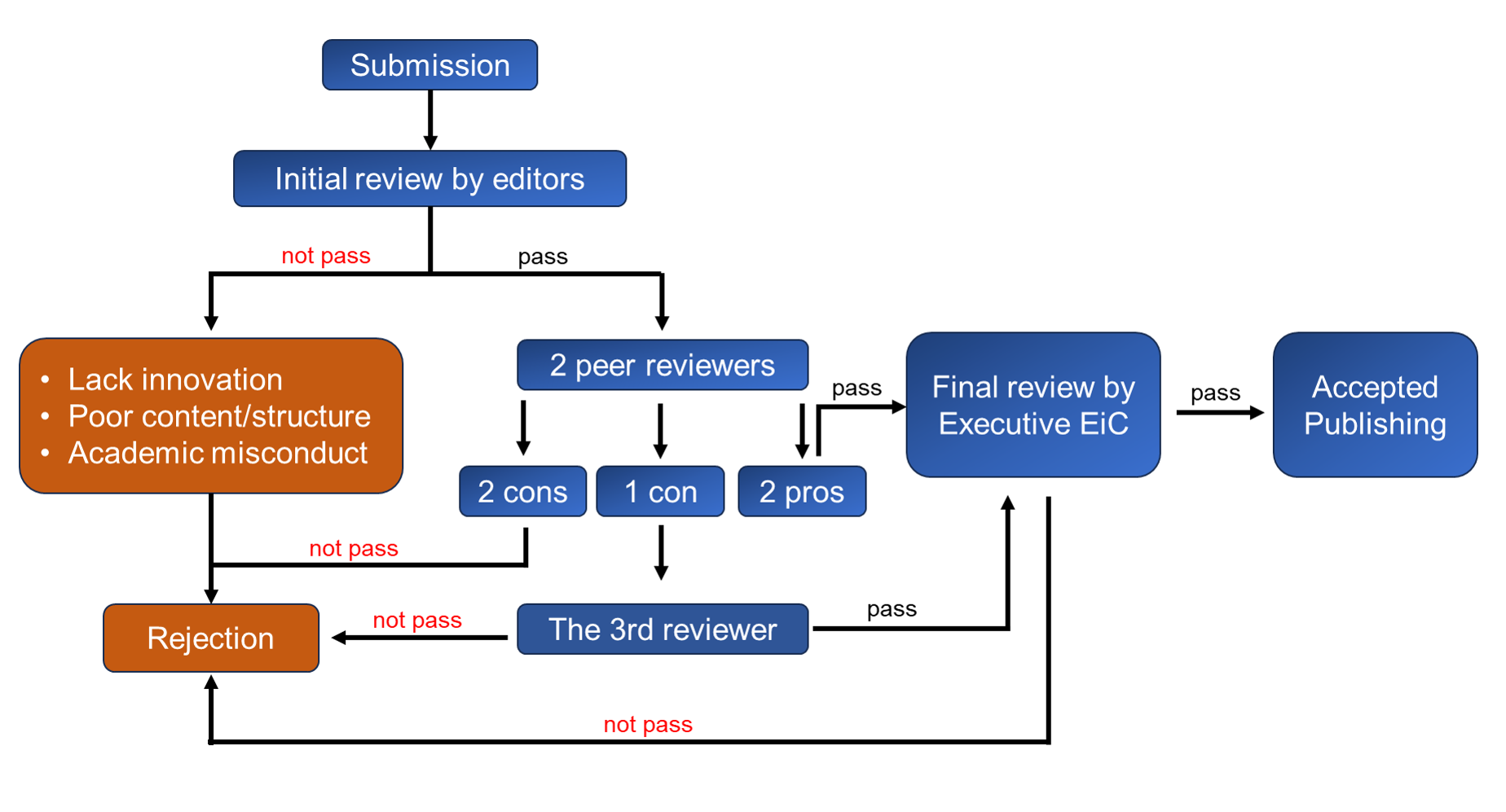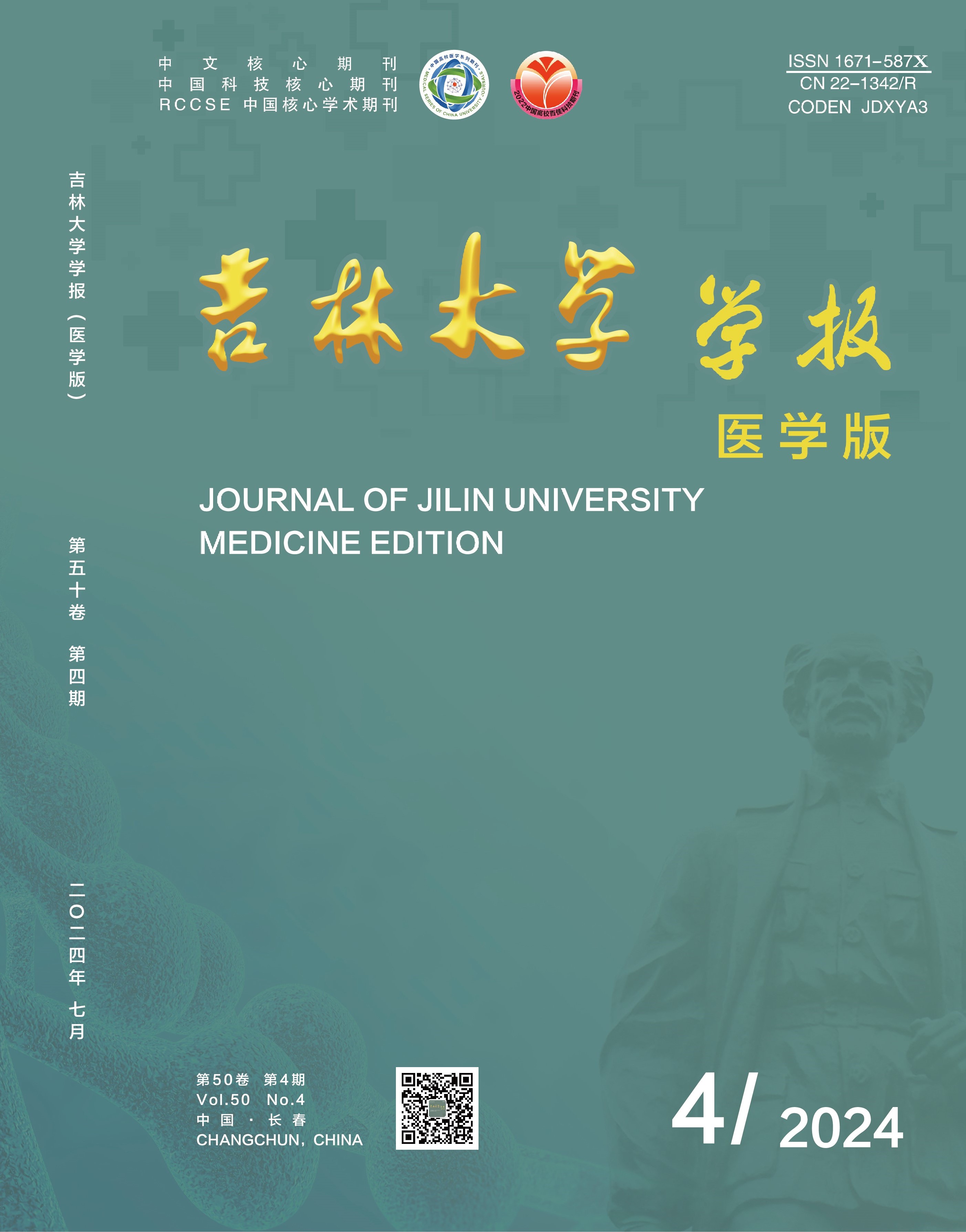
WeChat: JLDXXBYXB
Follow our WeChat account to check the status of submitted articlesand learn more about latest academic achievements.
 Editorial Policy
Editorial Policy-
Editorial Policy
Section 1 Review Process
1. After submission, the editors will conduct the initial review on all manuscripts. Manuscripts with insufficient innovation, unqualified content or structure, or involved in academic misconduct will be rejected.
2. After passing the initial review, manuscripts will be sent to at least 2 external experts for single-blind peer review. If the two reviewers have different opinions, the third reviewer will be invited.
3. After passing the peer review, manuscripts will be sent to the Executive Editor-in-chief for the final review, who will decide on the acceptance and publication of manuscripts.
The flow chart is as follows. The average time from submission to publishing is 40 weeks.

Section 2 Other Policies
1. Remarks: All submission must go through the above process. This journal adopts single-blind review. After peer review, the authors may be required to make revisions to the manuscript, and the authors must return the revised manuscript within the specified time. If the authors are required to supplement materials, the supplementary materials will also be evaluated. The review comments will not be published with the article.
2. Submissions by EBMs/Editors: Submissions by Editorial Board Members (EBMs)/Editors must adhere to the journal's review and editorial procedures, ensuring independence from the involved individuals and their research groups. They cannot participate in reviews of manuscripts whose authors they have conflicts of interest with.
3. Correction and Retraction: After publishing, if there appears to be an unintended scientific mistake in the article which would not lead to significant impacts on the results and conclusion, the editorial office will publish corrections in the journal as soon as possible, and detailing the changes made to the original article. If severe scientific errors are found in published articles, or the article is suspected of academic misconduct, such as plagiarism and data falsification, the editorial office will issue a statement to inform readers of the risks, initiate an investigation and announce the final result, or even retract article with a retraction statement if necessary.
4. Appeal and Post-publication Discussions: If authors have objections against the review comments, they can file an appeal in writing, quoting the manuscript serial number and stating detailed reasons for the appeal, and the appeal letter must be stamped by the author's institution for validation. The editorial office will decide whether to accept the appeal as appropriate. We warmly welcome authors and readers to participate in discussions on our published articles. Comments can be sent to the editorial office, who will handle them promptly and provide feedback as necessary. Furthermore, the journal actively encourages readers and authors to engage in mutual supervision and offer feedback on pertinent information, aiming to cultivate a vibrant and positive academic environment. Appeal and post-publication discussions shall be sent to xuebao@jlu.edu.cn.
5. Special Topic: This journal may set a special academic topic for certain issues. Those issues are part of regular issues and subject to all editorial process and policies of this journal. Guest editors will not be invited for those issues.

 Guide to Authors
Guide to Authors


